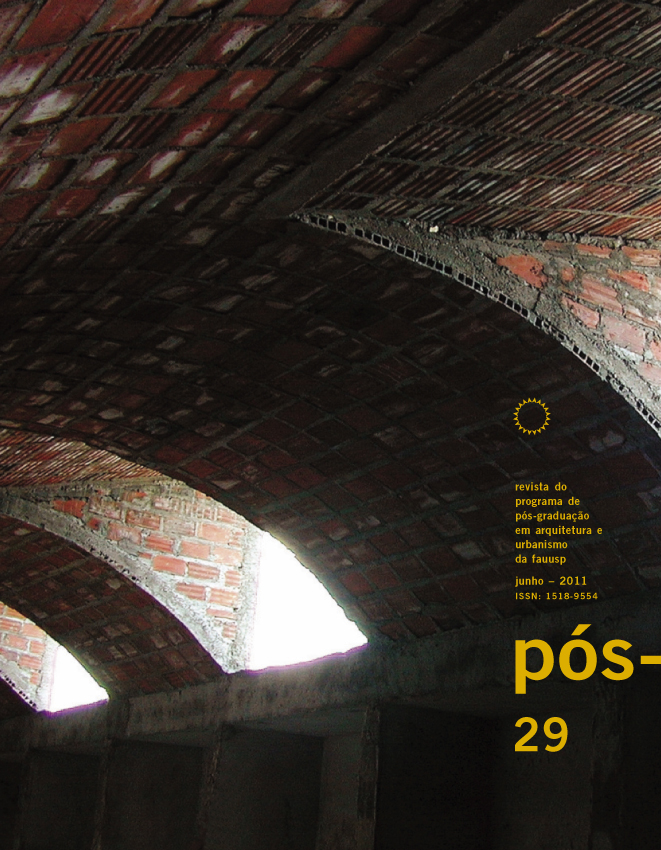Informality among the elite societies of Latin America
DOI:
https://doi.org/10.11606/issn.2317-2762.v18i29p98-113Keywords:
Informality, elite society, Brazil, Latin America, neoliberalism, ideologyAbstract
The term "informality" came into generalized use as of the 1980s, a neoliberal response to the crisis of the Welfare State in developed nations. The latter promotes certain inherent characteristics of capitalism and of its current crisis to more or less autonomous phenomena, with the production of a host of neologisms with blunted cutting edges. In this way, exploitation becomes exclusion, imperialism becomes globalization, late capitalism may be neo- or post-Fordism or even post-modernity, and subproletariat becomes homeless or street dweller. Illegality becomes informality. In urban agglomeration the term refers mainly to low-income settlements either simply "substandard" or in violation of some urban regulation: illegal occupation, squatting, lacking city approval, or at odds with land-use zoning. But we should not forget that by the same token there is plenty of "informality" at the other end - the upper end - of the social strata: clubs exempt from property taxes, high-rise luxury flats exceeding allowable plot ratios and/or other land use restrictions and even shopping malls on illegally occupied public land are not uncommon in São Paulo. This article, however, does not detail the many forms of "informality" but rather, discusses its causes - and the very meaning of the use of the word itself - and it suggests that those causes are rooted in the intrinsic peculiarities of the elite societies. The discussion is restricted to brazilian society, in the hope that both now and later every country will bring a contribution to a better understanding of the roots of Latin American frailty and towards revealing the potential of the movements of continental unification for a liberation of its forces of development.Downloads
References
AGLIETTA, Michel. Une théorie de la regulation du capitalisme. Paris: Maspéro, 1976.
BALL, Michael. O desenvolvimento do capitalismo na provisão da habitação. Espaço & Debates, n. 36, p. 11-34, 1992. . The development of capitalism in housing provision. International Journal of Urban and Regional Research, v. 5, n. 2, p. 145-177, 1981.
DEÁK, Csaba. Acumulação entravada no Brasil e a crise dos anos 80. Espaço & Debates, n. 32,p. 32-46, 1991. Disponível em: http://www.usp.br/fau/docentes/depprojeto/c_deak/CD/3publ/91ace/index.html. Acesso em: 20 jun. 2011.
DEÁK, Csaba. Verbetes. Periodização do capitalismo. Disponível em: http://www.usp.br/fau/docentes/depprojeto/c_deak/CD/4verb/period-K/index.html. Acesso em: 20 jun. 2004.
ENGELS, Friedrich. The housing question. Lepzi: [s.n.], 1872.
FERNANDES, Florestan. Capitalismo dependente e classes sociais na América Latina. São Paulo: Zahar, 1981.
LUZ, Nícia Vilela. A luta pela industrialização do Brasil. São Paulo: Alfa-Omega, 1975.
MOTTA, Carlos Guilherme da. O Brasil em perspectiva. São Paulo: Difel, 1981.
OLIVEIRA, Francisco. A economia brasileira: Crítica à razão dualista. Cadernos Cebrap, São Paulo, n. 2, p. 5, 1998.
ROCHA, Frederico; KUPFER, David. Structural changes and specialization in brazilian industry: the evolution of leading companies and the M&A process. The Developing Economies, XL-4, Nova Jersey, p. 497-521, 506, Table V, Dec. 2002.
SCHWARZ, Roberto. Um mestre na periferia do capitalismo: Machado de Assis. São Paulo: Duas Cidades, 1990.
VIOTTI da Costa, Emília. Introdução ao estudo da emancipação política. In: MOTTA, Carlos Guilherme da (Org.). O Brasil em perspectiva. São Paulo: Difel, 1968.
WERNECK, Nelson W. Sodré. As razões da Independência. São Paulo: Difel, 1986.
Downloads
Published
Issue
Section
License

This work is licensed under a Creative Commons Attribution 4.0 International License.
DIADORIM - Diretório de Políticas Editoriais












